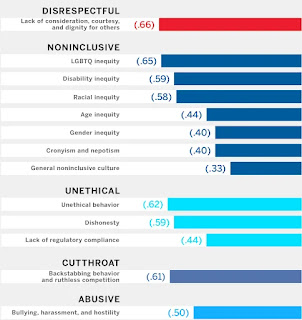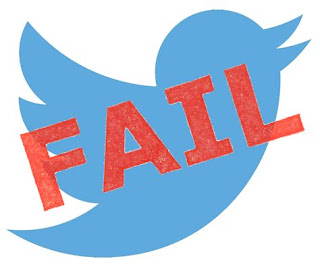D. Sull, W. Cipolli, & C. Brighenti
MIT Sloan Management Review
Originally posted 16 March 22
Here is an excerpt:
The High Costs of a Toxic Culture
By identifying the core elements of a toxic culture, we can synthesize existing research on closely related topics, including discrimination, abusive managers, unethical organizational behavior, workplace injustice, and incivility. This research allows us to tally the full cost of a toxic culture to individuals and organizations. And the toll, in human suffering and financial expenses, is staggering.
A large body of research shows that working in a toxic atmosphere is associated with elevated levels of stress, burnout, and mental health issues. Toxicity also translates into physical illness. When employees experience injustice in the workplace, their odds of suffering a major disease (including coronary disease, asthma, diabetes, and arthritis) increase by 35% to 55%.
In addition to the pain imposed on employees, a toxic culture also imposes costs that flow directly to the organization’s bottom line. When a toxic atmosphere makes workers sick, for example, their employer typically foots the bill. Among U.S. workers with health benefits, two-thirds have their health care expenses paid directly by their employer. By one estimate, toxic workplaces added an incremental $16 billion in employee health care costs in 2008. The figure below summarizes some of the costs of a toxic culture for organizations.
According to a study from the Society for Human Resource Management, 1 in 5 employees left a job at some point in their career because of its toxic culture. That survey, conducted before the pandemic, is consistent with our findings that a toxic culture is the best predictor of a company experiencing higher employee attrition than its industry overall during the first six months of the Great Resignation. Gallup estimates that the cost of replacing an employee who quits can total up to two times their annual salary when all direct and indirect expenses are accounted for.
Companies with a toxic culture will not only lose employees — they’ll also struggle to replace workers who jump ship. Over three-quarters of job seekers research an employer’s culture before applying for a job. In an age of online employee reviews, companies cannot keep their culture problems a secret for long, and a toxic culture, as we showed above, is by far the strongest predictor of a low review on Glassdoor. Having a toxic employer brand makes it harder to attract candidates.
Here is my take:
The article identifies five attributes that have a disproportionate impact on how workers view a toxic culture:
- Disrespectful
- Noninclusive
- Unethical
- Cutthroat
- Abusive
Leaders play a pivotal role in shaping and maintaining a positive work culture. They must be aware of the impact of toxic culture and actively work towards building a healthy and supportive environment.
To tackle toxic culture, leaders must first identify the behaviors and practices that contribute to it. Common toxic behaviors include micromanagement, lack of transparency, favoritism, excessive competition, and poor communication. Once the root causes of the problem have been identified, leaders can develop strategies to address them.
The article provides a number of recommendations for leaders to create a positive work culture, including:
- Setting clear expectations for behavior and holding employees accountable
- Fostering a culture of trust and respect
- Promoting diversity and inclusion
- Providing employees with opportunities for growth and development
- Creating a work-life balance
- Leaders who are committed to creating a positive work culture will see the benefits reflected in their team's performance and the organization's bottom line.



















